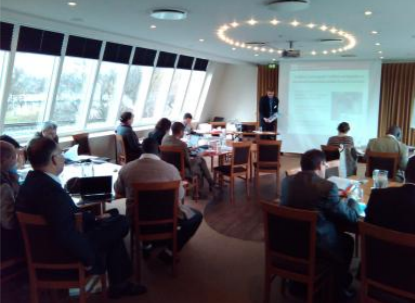
In January, a select group of policy makers and national society representatives from around the globe convened in Køge, Denmark for the first annual “Disaster Law Short Course.” Organized jointly by IFRC, the Danish Red Cross and the Danish Emergency Management Agency (DEMA), the course was designed to provide a broad overview of law and legal issues in domestic response, international disaster cooperation and disaster risk reduction.
Guest speakers from UN ISDR, OCHA, German Red Cross, Iranian Red Crescent and the Philippines Office of Civil Defense joined presenters from the co-sponsoring institutions to bring participants cutting edge information about trends in international and domestic law related to disaster management.
Participants were invited to work both with hypothetical scenarios and their own existing legislation to examine current legal issues and assess the uses and limitations of existing international instruments.
Flemming Klokager, DEMA Acting Director, underlined the importance Denmark attributed to this event and to the impact it might have in assisting participants to improve their regulatory frameworks for disaster management. “As disaster managers, we are action-oriented,” he pointed out. “When we cannot operate fully due to legislation and rules not being in place, the quality of our services decline.”
Likewise, Anne Sofie Lauritzen speaking on behalf of Danish Red Cross Secretary-General, Anders Lederkarl, noted the sense of responsibility felt by the Red Cross/Red Crescent to contribute to the strengthening of laws and policies. “The fact is that the number of disasters is on the rise, largely due to the effects of global warming,” she noted, “And we, states and humanitarian organisations alike, have a joint responsibility to ensure that relief efforts are coordinated and effective and make a difference for those that suffers; whether it is for the people in Haiti, Pakistan or Europe or for those where the humanitarian consequences don’t reach the attention of the media and the public.”
“We hope that this will only be the first of many such courses,” noted IFRC IDRL Coordinator, David Fisher. “It is certainly time for this complex and rich area of knowledge to be made more available to policy-makers.”